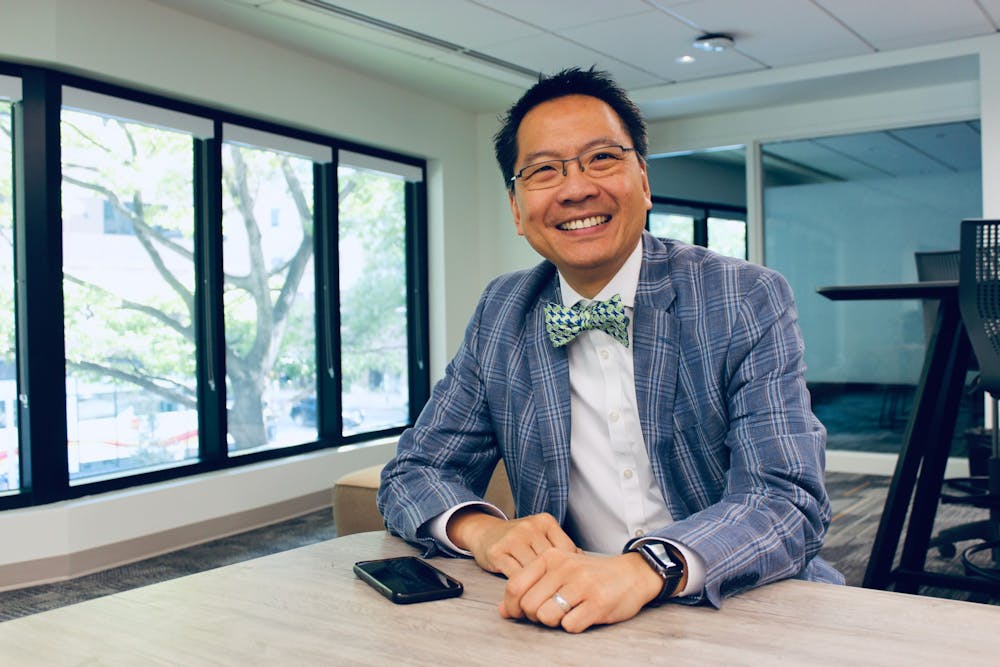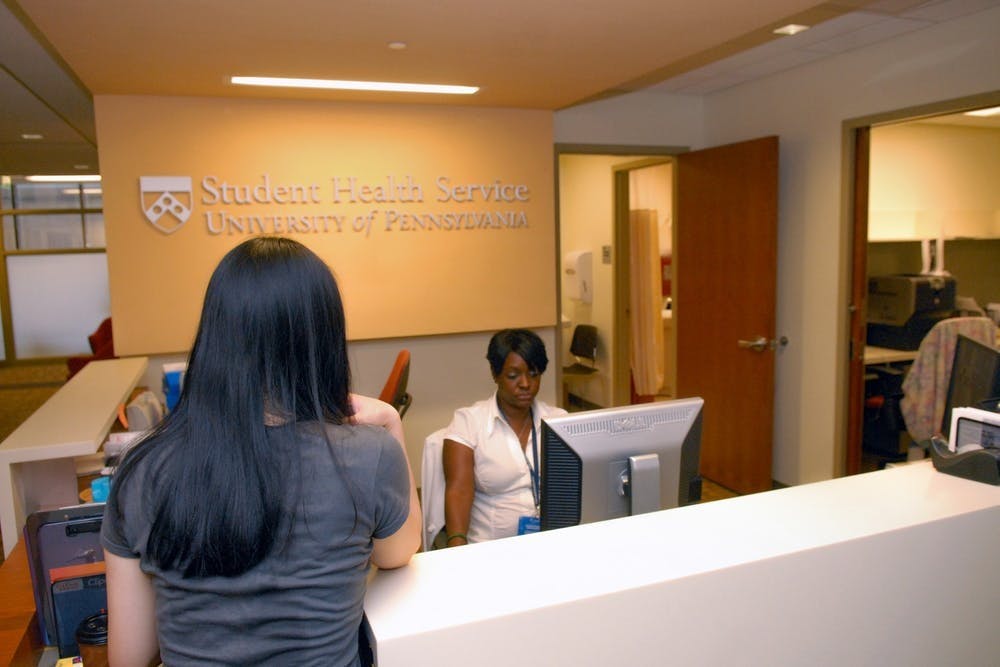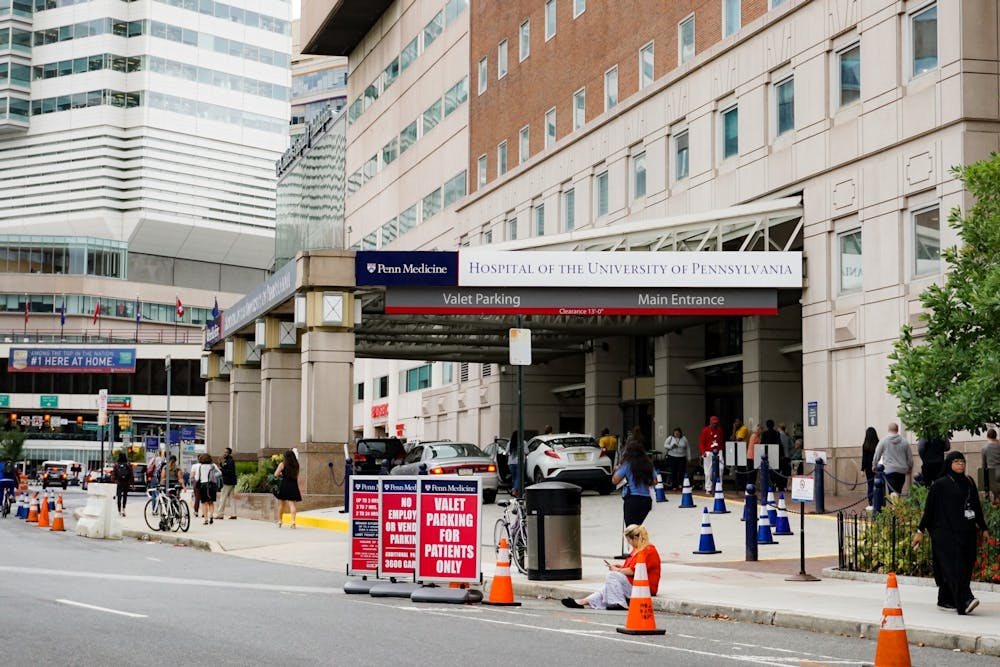
SHS Director Giang Nguyen has spent more than a decade vying for better health care for LGBTQ and Asian American populations.
Credit: Caroline GibsonIn his early thirties, Giang Nguyen was back in a classroom, taking notes from professors' lectures. Nguyen was studying for his fourth degree — a Master of Science in Clinical Epidemiology at Penn. He had just graduated from a three-year medical residency program at Thomas Jefferson University Hospital, during which he worked up to 120 hours a week and drove from his home to the hospital at 4:30 a.m. when few cars crept through the streets.
After coming to Penn in 2003 as a faculty development fellow and master's student, Nguyen has spent more than a decade vying for better health care for LGBTQ and Asian American populations. Since 2015, he has served as Student Health Service director. In two weeks, however, he will be leaving Penn to take on the top position at Harvard University Health Services following a national search for a replacement for Harvard's former director.
"I was not at all searching for any greener pastures," he said. "I have loved this job [at Penn] and have really enjoyed it tremendously for the past four-and-half years."
Nguyen said he became SHS director to fill the position left open by the “well-loved” Evelyn Wiener, who had led the department since 2000 and died in 2014. At the time of his appointment, his new boss, Vice Provost for University Life Valarie Swain-Cade McCoullum, described him as an “exceptional candidate” in a public statement.

After he became an assistant professor of family medicine in 2007, Nguyen considered himself a typical faculty member at Penn writing grants, conducting studies, and giving lectures. But he adamantly steered away from being “a researcher who comes in like they know everything.” Instead, he wanted to take part in the community and aspired to study the issues the community cared about.
His research first pivoted around cancer prevention in immigrant Asian families, but he stretched it to include mental health and access to language services after feedback from community leaders. Nguyen joined events around Philadelphia, such as Lunar New Year and Mid-Autumn Festival celebrations in Chinatown and chatted with members of the community. He gave a presentation on cancer prevention in Vietnamese to a group of elderly immigrants from Vietnam.
In 2004, Nguyen established Penn Asian Health Initiatives, a program promoting community engagement, public health education, and research concerning the health of Asian American populations. Through the program, he set up free flu vaccine pop-up clinics for an afternoon at three or four locations each year, and vaccinated more than 3,000 people in the years he’s been involved.
“This is how I started my work rather than saying ‘let me study you,’” he said.
When Nguyen was 3 years old, he fled the war in Vietnam with his parents and sister and arrived in New Jersey as a refugee. Even though his parents were both teachers in Vietnam, the American education system loomed large as an unfamiliar road. Nguyen credited his older sister, who is now an engineer, for “figur[ing] things out” for the both of them.

After “soul-searching” sophomore year of college, he began sitting in classes such as biostatistics and maternal and childhood care and earned a bachelor’s degree in public health from Johns Hopkins University. Nguyen then attended medical school back home in New Jersey but took a two-year leave to do public health research and take classes for the Master of Public Health degree.
His passion for public health stuck, just as his dedication to underserved communities. During his time as a professor, Nguyen wanted every medical student at Penn to have an education on public health, said Jennifer Pinto-Martin, director of the MPH program at Penn. As the head of the MD/MPH committee, Nguyen asked the medical school to waive the tuition of the MPH degree for medical students. He also helped grow the MPH program from 30 students to about 175.
The weight of his work belied Nguyen’s cheerful demeanor, his colleagues said. Pinto-Martin described Nguyen as “just delightful” and “one of the most positive, upbeat” people to work with, who never appeared stressed by his tasks. Professor of Family Medicine Peter Cronholm, who worked with Nguyen on Penn Asian Health Initiatives, remembered that every year during the holiday season, Nguyen handed out homemade peppermint bark goodie bags to “just about everyone he knew.”
2019 College graduate Chloe Cheng worked with Nguyen as a leader of Lambda Alliance and Penn Queer and Asian. She met with Nguyen to lobby for switching the name of “women’s health” services to “gynecological” services to be more inclusive of all genders. She described him as one of the few “administrators who truly listen to student feedback and opinions for change instead of simply paying students lip-service.”
The Daily Pennsylvanian is an independent, student-run newspaper. Please consider making a donation to support the coverage that shapes the University. Your generosity ensures a future of strong journalism at Penn.
Donate







